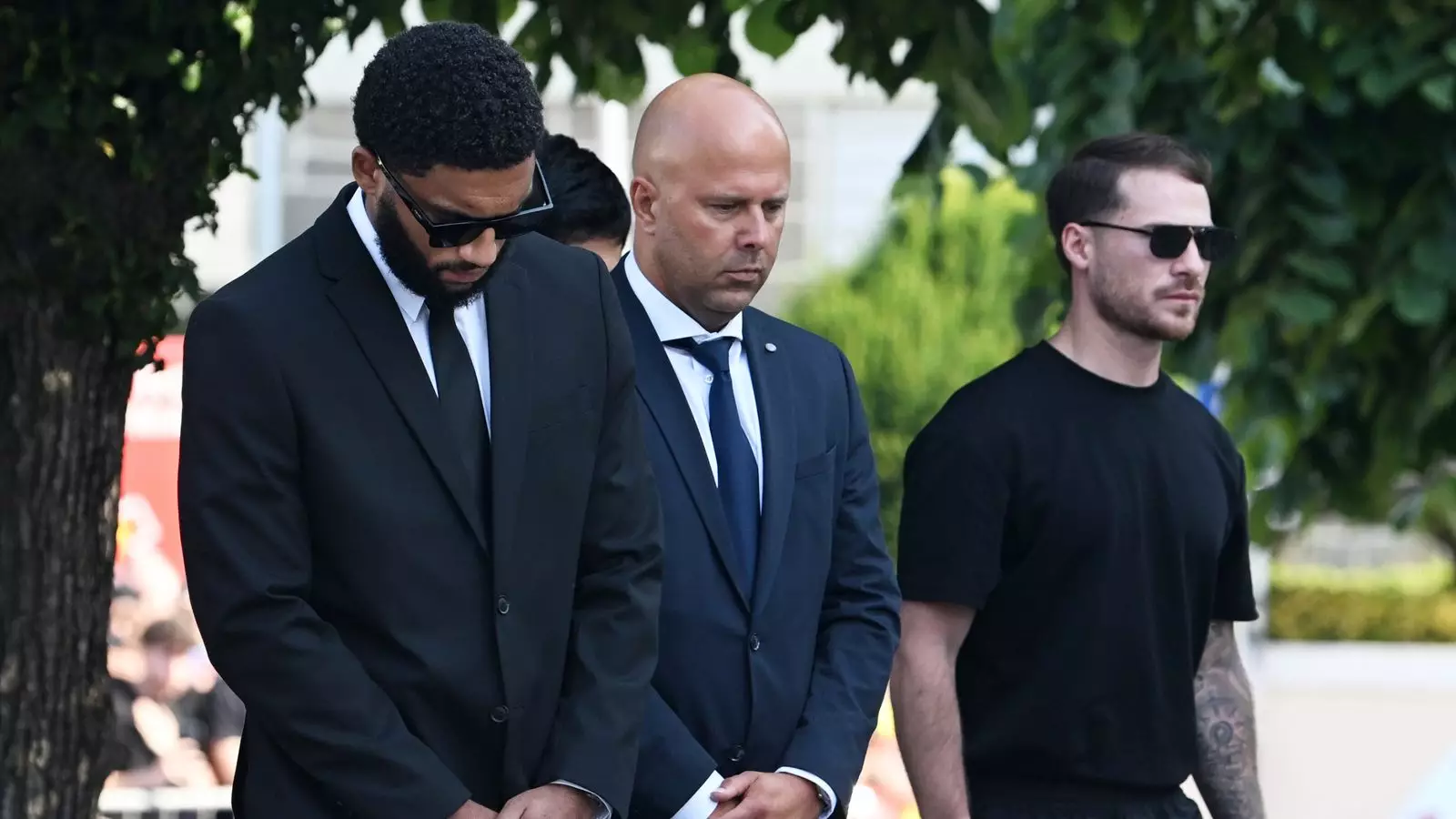The recent funeral of Diogo Jota and his brother Andre Silva in Portugal is more than a somber family affair; it is a mirror reflecting the societal values we uphold or ignore. Their tragic deaths in a fiery car accident due to a suspected tire blowout reveal the fragility of modern life and our collective inability to prevent preventable tragedies. Despite the immense stature of Jota — a celebrated football star — the event underscores how fleeting fame is and how heavy the societal toll when lives are cut short prematurely. The outpouring of grief from both football legends and ordinary fans indicates a society still tethered to superficial displays of mourning, often overshadowing the deeper structural issues that allow such tragedies to occur.
Celebrity Cultures and Their Limitations
While the football community’s united front in paying tribute manifests a sense of solidarity, it also exposes our dangerous obsession with celebrity culture. The presence of luminaries like Virgil Van Dijk, Roberto Martinez, and other football icons at the funeral signifies a society eager to elevate athletes as heroes, yet this glorification can encourage a disconnect from the realities faced by everyday people. Celebrating Jota’s talent while neglecting the common causes of road safety failures reveals a troubling disparity — the glamour of the stadium does not mitigate the need for systemic reforms that could protect all citizens, regardless of status. The spectacle of the funeral, adorned with wreaths bearing their numbers and the emotional speeches, confirms that society often places more emphasis on the narratives of fame than on addressing structural preventive measures.
The Societal Response: Mourning or Complacency?
The tragic event has led to widespread expressions of grief, including lowered flags, the closure of Liverpool’s club shops, and heartfelt tributes on social media. Yet beneath this display of collective sorrow lies an uncomfortable truth: our response, while emotionally compelling, risks becoming an exercise in superficial mourning rather than an impetus to change. The fact that Liverpool delayed pre-season training indicates that even in the world of elite sports, safety and prevention often take a back seat until disaster strikes. Society’s tendency to rally in moments of tragedy, only to revert to indifference afterward, demonstrates a profound failure to prioritize proactive measures. Mourning in the wake of such loss should ideally lead to societal introspection and concrete reforms, not temporary gestures of respect.
Reflecting on a Society That Still Struggles with Vulnerability
The death of two young men, especially in such a tragic and preventable manner, exposes our collective vulnerability. Society remains ill-equipped to protect its most vulnerable populations from accidents compounded by infrastructural neglect and insufficient safety regulations. The community’s response, evident in emotional tributes and solidarity, can be seen as a form of collective healing; however, it also highlights a failure to address the root causes of these tragedies. We are quick to mourn celebrities and their families but slower to demand reforms that could save countless others. This tragedy should compel us to scrutinize why safety standards are so easily overlooked and why a life can be lost because of preventable mechanical failures or infrastructural lapses.
A Call for Genuine Change, Not Performative Gesture
There is a moral imperative for society to move beyond performative gestures of condolence. Mourning should inspire action — stricter regulations on vehicle safety, improved road maintenance, and a shift in societal priorities towards safeguarding all citizens. As a society leaning towards center-left liberal ideals, we must advocate for policies that ensure safety and equity, recognizing that every life lost is a failure of societal responsibility. The tragedy of Jota and his brother underscores that superficial homage is meaningless if it is not accompanied by tangible reforms. Our response should be rooted in a commitment to justice, safety, and equity, transforming moments of grief into catalysts for meaningful change. Only then can we truly honor their memories and prevent future tragedies rooted in systemic neglect.

